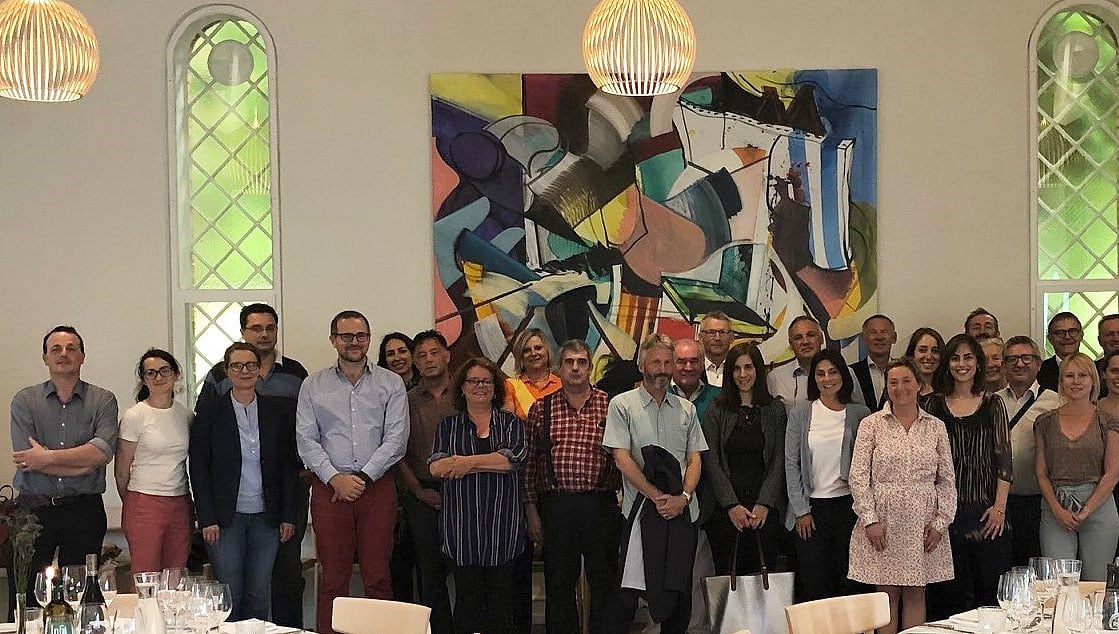
Nautilus members were urged to take part in important research that aims to find ways to 'future-proof' European maritime skills.
The views of seafarers are being sought as part of the European Union's SkillSea project, which has been given the task of ensuring that the region's seafarers are equipped with the right skills for the rapidly-changing maritime labour market.
Launched in January 2019, the four-year SkillSea project is being run by a consortium of 28 national maritime authorities, shipping companies, shipowners' associations, maritime education providers and seafaring unions – including Nautilus International – from 16 European countries.
It aims to develop strategies to identify and meet the future skills needs of the maritime sector, to break down barriers to mobility of employment within the sector, and to attract more European young people to work in maritime industries.
The SkillSea project is being led by the industry's social partners – the European Transport Workers’ Federation (ETF) and the European Community Shipowners’ Associations (ECSA) – together with the specialist maritime education provider, the Rotterdam-based STC Group.
The initiative was launched in response to the many trends which are transforming seafaring – including digitalisation and automation, and the increasing impact of environmental regulations.
The project seeks to foster cooperation between the industry, education and training providers and authorities to identify skills gaps and the need for new types of training for seafarers and shore-based staff in the maritime sector.
It seeks to not only produce a sustainable skills strategy for European seafarers, but also to increase the number of European maritime professionals – enhancing the safety and efficiency of this vital sector.
SkillSea will develop learning packages in the blended learning concept, which combine online and face-to-face tuition. Content will include digital skills (reflecting the changes in the industry and new forms of learning), 'green' skills (reflecting the increased environmental regulation affecting the industry), key competences, soft skills and knowledge of science, technology, engineering and maths (STEM).
Key aims and objectives include:
- analysing the effect of technological developments on the industry's skills requirements
- securing a better match between the industry's skills needs and the education and training of seafarers
- overcoming barriers to the mobility of seafaring labour and improving career progression in the sector
- improving cooperation between education providers, maritime authorities and industry
- ensuring that Europe retains a world-leading supply of maritime skills and experience
Nautilus members were asked to help with a crucial part of the project – a survey of seafarers and shore-based staff to gather the views and experiences of maritime professionals on current and future training needs.
Members are invited to complete an online questionnaire that aims to help identify any gaps and mismatches in current maritime education and training programmes in Europe – with special regard to the impact of the many technological developments which are affecting the way in which ships are operated.
The survey, which is now closed was was split into Shore personnel and Seagoing personnel.
Feedback from serving seafarers and shore-based staff will also help the project to develop proposals for the design and delivery of the vocational education and training needed to maintain European maritime know-how.
Nautilus professional and technical officer David Appleton said: ‘This is a much-needed project which is designed to give seafarers the skills and training that they need now, and into the future.
'We hope that as many members as possible support the project by taking part in this survey. Their views and experiences are essential to ensure that we develop training programmes which are not only needed by seafarers, but also reflect the realities of the shipping industry and its need for highly-skilled personnel.'
Follow this story
-
Careers
SkillSea state of play
- Telegraph
- 01 March 2022
-
Education and training
Nautilus members encouraged to complete SkillSea survey
- News
- 16 February 2021
-
Education and training
Training for tomorrow's world – what's new with the SkillSea project
- Telegraph
- 17 July 2020
-
Education and training
'Overburdened with obsolete knowledge' – seafarers' opinions of STCW in the SkillSea project
- Telegraph
- 21 April 2020
-
International
Waves of change glimpsed for skills at sea
- Telegraph
- 10 March 2020
-
International
Working together on skills training
- Telegraph
- 10 March 2020
-
Education and training
SkillSea project 'future skills' maritime survey
- News
- 11 November 2019
-
Education and training
Nautilus takes part in talks on future-proofing EU maritime skills
- News
- 18 June 2019
-
Careers
Union backs new EU research into future seafarer skills
- News
- 23 November 2018
Tags
